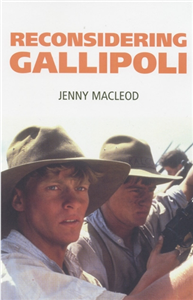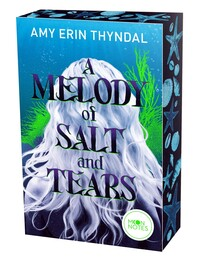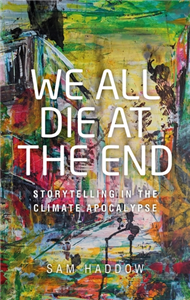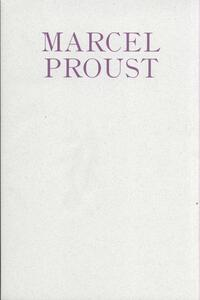Your Search Results
-
Wolters Kluwer Legal & Regulatory U.S.
Wolters Kluwer Law & Business delivers expert content and solutions in the areas of law, corporate compliance, health compliance, reimbursement, and legal education.
View Rights Portal
-
Promoted ContentHumanities & Social SciencesMarch 2017
Unfit for heroes
Reconstruction and soldier settlement in the empire between the wars
by Kent Fedorowich
Research on soldier settlement has to be set within the wider history of emigration and immigration. This book examines two parallel but complementary themes: the settlement of British soldiers in the overseas or 'white' dominions, Australia, Canada, New Zealand and South Africa, between 1915 and 1930. One must place soldier settlement within the larger context of imperial migration prior to 1914 in order to elicit the changes in attitude and policy which occurred after the armistice. The book discusses the changes to Anglo-dominion relations that were consequent upon the incorporation of British ex-service personnel into several overseas soldier settlement programmes, and unravels the responses of the dominion governments to such programmes. For instance, Canadians and Australians complained about the number of ex-imperials who arrived physically unfit and unable to undertake employment of any kind. The First World War made the British government to commit itself to a free passage scheme for its ex-service personnel between 1914 and 1922. The efforts of men such as L. S. Amery who attempted to establish a landed imperial yeomanry overseas is described. Anglicisation was revived in South Africa after the second Anglo-Boer War, and politicisation of the country's soldier settlement was an integral part of the larger debate on British immigration to South Africa. The Australian experience of resettling ex-servicemen on the land after World War I came at a great social and financial cost, and New Zealand's disappointing results demonstrated the nation's vulnerability to outside economic factors.
-
Promoted ContentLiterature & Literary StudiesNovember 2000
Myth, legend, dust
Critical Responses to Cormac McCarthy
by Rick Wallach
-
 Trusted Partner
Literature & Literary StudiesMarch 2017
Trusted Partner
Literature & Literary StudiesMarch 2017Asia in Western fiction
by Robin Winks
Any reader who has ever visited Asia knows that the great bulk of Western-language fiction about Asian cultures turns on stereotypes. This book, a collection of essays, explores the problem of entering Asian societies through Western fiction, since this is the major port of entry for most school children, university students and most adults. In the thirteenth century, serious attempts were made to understand Asian literature for its own sake. Hau Kioou Choaan, a typical Chinese novel, was quite different from the wild and magical pseudo-Oriental tales. European perceptions of the Muslim world are centuries old, originating in medieval Christendom's encounter with Islam in the age of the Crusades. There is explicit and sustained criticism of medieval mores and values in Scott's novels set in the Middle Ages, and this is to be true of much English-language historical fiction of the nineteenth and early twentieth centuries. Even mediocre novels take on momentary importance because of the pervasive power of India. The awesome, remote and inaccessible Himalayas inevitably became for Western writers an idealised setting for novels of magic, romance and high adventure, and for travellers' tales that read like fiction. Chinese fictions flourish in many guises. Most contemporary Hong Kong fiction reinforced corrupt mandarins, barbaric punishments and heathens. Of the novels about Japan published after 1945, two may serve to frame a discussion of Japanese behaviour as it could be observed (or imagined) by prisoners of war: Black Fountains and Three Bamboos.
-
 Trusted Partner
HistoriographyJune 2004
Trusted Partner
HistoriographyJune 2004Reconsidering Gallipoli
by Jenny Macleod
The British cultural history of the Gallipoli campaign has been overlooked until now - this is a significant book as it offers the first real opportunity for this important campaign to be included in undergraduate courses on WWI. The commemoration of war is a particularly vibrant area of study - Anzac Day, commemorating the landings that began the Gallipoli campaign, is central to Australian national consciousness and this book examines why. A crucial argument in the cultural history of the First World War was sparked by Paul Fussell's contention that the war signified a profound cultural rupture; in widening the debate from the Western Front, this book supports the counter argument that romantic modes of expression retained resonance and utility. In Australia, the renewal of the story of Gallipoli by historians and film-makers (notably Peter Weir's 1981 film starring Mel Gibson) has profoundly altered the national sense of identity and society's perceptions of the armed forces; the authors explains how the writing of this particular event has developed and achieved this central position. An essential volume for those interested in British military and Australian history, postcolonialism and nation building, from academics and students through to the general reader.
-
 Trusted Partner
Literature & Literary StudiesOctober 2023
Trusted Partner
Literature & Literary StudiesOctober 2023The penny politics of Victorian popular fiction
by Rob Breton
Penny politics offers a new way to read early Victorian popular fiction such as Jack Sheppard, Sweeney Todd, and The Mysteries of London. It locates forms of radical discourse in the popular literature that emerged simultaneously with Brittan's longest and most significant people's movement. It listens for echoes of Chartist fiction in popular fiction. The book rethinks the relationship between the popular and political, understanding that radical politics had popular appeal and that the lines separating a genuine radicalism from commercial success are complicated and never absolute. With archival work into Newgate calendars and Chartist periodicals, as well as media history and culture, it brings together histories of the popular and political so as to rewrite the radical canon.
-
 Trusted Partner
Literature & Literary StudiesMarch 2025
Trusted Partner
Literature & Literary StudiesMarch 2025Through the fiction of Phebe Gibbes (1764–90)
Women, alienation, and prodigality in the long eighteenth century
by Kathryn Freeman
Through the Fiction of Phebe Gibbes places this prolific, newly recovered English writer at the centre of the revolutionary period. Gibbes's novels mark the struggles of women for agency in an expanding British empire, from the Seven Years' War to revolutions in American, Haiti and France. With Gibbes as a nexus in a lineage of women writers from Aphra Behn to Jane Austen, Kathryn S. Freeman offers a valuable perspective on the 'long eighteenth century', with Gibbes' own evolution mirroring that of the larger period. The study traces the development of Gibbes' authorial voice from satire to irony through a range of female characters subverting patriarchal oppression. Freeman guides the reader through patterns of narrative voice, concerns with gender and sexuality, and elements of wordplay through detailed discussion of five novels representing Gibbes' evolving representation of a subversive female subjectivity.
-
 Trusted Partner
July 2025
Trusted Partner
July 2025Fable for the End of the World
Tränen aus Blut und Hoffnung - Fesselnde Dystopie trifft auf queere Enemies-to-Lovers-Romance - Mit Farbschnitt in der 1. Auflage
by Ava Reid, Nadine Mannchen
Du sollst sie töten. Doch was, wenn du ohne sie nicht überleben kannst? Die Erde ist verseucht, der Meeresspiegel steigt und ein Konzern regiert Inesas Heimat. Dieser hat auch den Lauf des Lamms etabliert: einen tödlichen Wettkampf, der live übertragen wird und bei dem schwer verschuldete Menschen als „Lämmer“ von ausgebildeten „Engeln“ gejagt werden. Als Inesas Mutter zu tief in die Schulden rutscht, muss ihre Tochter für sie beim Lauf antreten. Doch der Kampf um Leben und Tod bringt Inesa ihrem Engel Melinoë näher als geahnt ... Der spannungsgeladene und berührende New York Times -Besteller Ava Reids Fable for the End of the World ist nicht nur eine mitreißende Dystopie, sondern auch eine bewegende Liebesgeschichte – verwoben mit tiefgründigen Themen und geschrieben in einem wunderschönen Stil. Der New York Times -Bestseller jetzt auf Deutsch : Über den Kampf ums Überleben, die Frage nach Menschlichkeit und den Glauben an die Hoffnung Fesselnde Dystopie : eine Welt, die unter den Folgen des Klimawandels leidet und ein tödlicher Wettkampf, der live übertragen wird. Mit queerer Liebesgeschichte : lesbische Enemies-to-Lovers-Romance Kapitalismuskritik : Ein Konzern regiert das Land, treibt seine Bevölkerung in die Schulden und handelt nur im Sinne des Profits. Feministische Botschaft : gegen Sexismus und die Objektifizierung von Frauen Poetischer Stil : SPIEGEL-Bestsellerautorin Ava Reid berührt mit wunderschönen Zeilen. Erstauflage mit opulentem Farbschnitt und exklusiver Charakterpostkarte - Nur in der 1. Auflage!
-
 Trusted Partner
February 2026
Trusted Partner
February 2026Die Legende der Steinkrieger 03
Fesselndes Fantasy-Epos über Verrat, Macht und eine sagenumwobene Kriegerin aus Stein - Actiongeladener Manga in historischem Setting
by Iroha Kohinata, Iroha Kohinata, Costa Caspary
Game of Thrones meets Avatar – Der Herr der Elemente in diesem fesselnden Fantasy-Epos Die Legende der Steinkrieger entführt die Leser*innen in eine historisch inspirierte Fantasywelt voll epischer Schlachten und nicht weniger aufregenden Intrigen . Mit dramatischen Wendungen , mutigen Protagonist*innen und einem wunderschönen Zeichenstil fasziniert dieses Actionspektakel Fantasy-Fans, die eine tiefgründige Geschichte mit Spannung und Herz suchen. Für Fans von Dr. Stone , Akame ga KILL! und Blue Exorcist . Fesselndes Fantasy-Epos im Stil von Avatar – Der Herr der Elemente : Die Legende der Steinkrieger zieht Jugendliche ab 14 Jahren mit einer mitreißenden Heldengeschichte in seinen Bann, die neben spannenden Intrigen auch große Gefühle bereithält. Inspirierende und vielschichtige Charaktere : Neben zwei tapferen Brüdern, die alles für ihr Königreich tun würden, mischen auch starke weibliche Hauptfiguren ordentlich mit. Gemeinsam stellen sie sich den Herausforderungen wie Verlust, Liebe und der Bedeutung von Familie. Einzigartige Themenmischung : Hier kommen nicht nur Action- und Drama-Fans ganz auf ihre Kosten, sondern auch Leser*innen, die epische Geschichten voller Mut, Freundschaft und Selbstfindung lieben.
-
 Trusted Partner
October 2025
Trusted Partner
October 2025Die Legende der Steinkrieger 01
Fesselndes Fantasy-Epos über Verrat, Macht und eine sagenumwobene Kriegerin aus Stein - Actiongeladener Manga in historischem Setting
by Iroha Kohinata, Iroha Kohinata, Costa Caspary
Krieg der Steine Die Hochzeit von Prinz Saku ist den rivalisierenden Fürsten ein Dorn im Auge. Sie akzeptieren den achtzehnjährigen Knaben nicht als ihren neuen Herrn und planen einen heimtückischen Verrat. Was als Freudentag geplant war, verwandelt sich in ein blutiges Massaker. Als alles verloren scheint, stößt Sakus Bruder auf ein mysteriöses Wesen, das angeblich nur in Märchen existiert. Doch wird der Bund mit diesem Monster ein Segen oder ein Fluch sein? Game of Thrones meets Avatar – Der Herr der Elemente in diesem fesselnden Fantasy-Epos Die Legende der Steinkrieger entführt die Leser*innen in eine historisch inspirierte Fantasywelt voll epischer Schlachten und nicht weniger aufregenden Intrigen . Mit dramatischen Wendungen , mutigen Protagonist*innen und einem wunderschönen Zeichenstil fasziniert dieses Actionspektakel Fantasy-Fans, die eine tiefgründige Geschichte mit Spannung und Herz suchen. Für Fans von Dr. Stone , Akame ga KILL! und Blue Exorcist . Fesselndes Fantasy-Epos im Stil von Avatar – Der Herr der Elemente : Die Legende der Steinkrieger zieht Jugendliche ab 14 Jahren mit einer mitreißenden Heldengeschichte in seinen Bann, die neben spannenden Intrigen auch große Gefühle bereithält. Inspirierende und vielschichtige Charaktere : Neben zwei tapferen Brüdern, die alles für ihr Königreich tun würden, mischen auch starke weibliche Hauptfiguren ordentlich mit. Gemeinsam stellen sie sich den Herausforderungen wie Verlust, Liebe und der Bedeutung von Familie. Einzigartige Themenmischung : Hier kommen nicht nur Action- und Drama-Fans ganz auf ihre Kosten, sondern auch Leser*innen, die epische Geschichten voller Mut, Freundschaft und Selbstfindung lieben.
-
 Trusted Partner
Humanities & Social SciencesApril 2007
Trusted Partner
Humanities & Social SciencesApril 2007The politics of Englishness
by Arthur Aughey, Martin Hargreaves
The politics of Englishness provides a digest of the debates about England and Englishness and a unique perspective on those debates. Not only does the book provide readers with ready access to and interpretation of the significant literature on the English Question, it also enables them to make sense of the political, historical and cultural factors which constitute that question. The book addresses the condition of England in three interrelated parts. The first looks at traditional narratives of the English polity and reads them as variations of a legend of political Englishness, of England as the exemplary exception, exceptional in its constitutional tradition and exemplary in its political stability. The second considers how the decay of that legend has encouraged anxieties about English political identity and about how English identity can be recognised within the new complexity of British governance. The third revisits these narratives and anxieties, examining them in terms of actual and metaphorical 'locations' of Englishness: the regional, the European and the British. ;
-
 Trusted Partner
Literature & Literary StudiesOctober 2012
Trusted Partner
Literature & Literary StudiesOctober 2012Narration in nineteenth-century French short fiction
Prosper Mérimée to Marcel Schwob
by Peter Cogman
The short fiction that flourished in nineteenth-century France has attracted relatively little critical attention compared with the novel. This study focuses on some key stories by major authors of contes and nouvelles from the late 1820s to the 1890s, taking as a starting-point, aspects of narrative technique as a way of exploring not just characteristic strategies of short fiction, but also the ends to which they were put: recurrent themes, and the vision of mankind. Each chapter looks in some detail at three or four stories, referring briefly to other tales for illustration. The underlying point that emerges from this study is that the interest of a tale lies in the telling, not the events. ;
-
 Trusted Partner
Humanities & Social SciencesAugust 2012
Trusted Partner
Humanities & Social SciencesAugust 2012French crime fiction and the Second World War
by Claire Gorrara, Bertrand Taithe, Penny Summerfield, Peter Gatrell, Max Jones, Ana Carden-Coyne
-
 Trusted Partner
June 1995
Trusted Partner
June 1995Die Legende vom Künstler
Ein geschichtlicher Versuch
by Ernst Kris, Otto Kurz, Ernst H. Gombrich
"Die Fragestellung dieser Schrift betrifft die Haltung der Umwelt zum Künstler. Nicht der Lebenslauf des Künstlers, sondern das Urteil von Mit- und Nachwelt wird uns als Quelle dienen, die Künstlerbiographik im weitesten Sinn; in ihrem Mittelpunkt steht die Legende vom Künstler. Wir meinen aufzeigen zu können, daß in aller Biographik gewisse Grundvorstellungen vom bildenden Künstler nachzuweisen sind, die, ihrem Wesen nach aus einheitlicher Wurzel verständlich, sich bis in die Anfänge der Geschichtsschreibung zurückverfolgen lassen. Bei aller Abwandlung und Umgestaltung scheinen sie bis in die jüngste Vergangenheit ihre Bedeutung nie ganz eingebüßt zu haben."
-
 Trusted Partner
Trusted Partner
-
 Trusted Partner
Literature: history & criticismSeptember 2016
Trusted Partner
Literature: history & criticismSeptember 2016Spenserian allegory and Elizabethan biblical exegesis
A context for The Faerie Queene
by Series edited by J. B. Lethbridge, Margaret Christian
Edmund Spenser famously conceded to his friend Walter Raleigh that his method in The Faerie Queene 'will seeme displeasaunt' to those who would 'rather have good discipline delivered plainly in way of precepts, or sermoned at large'. Spenser's allegory and Elizabethan biblical exegesis is the first book-length study to clarify Spenser's comparison by introducing readers to the biblical typologies of contemporary sermons and liturgies. The result demonstrates that 'precepts ... sermoned at large' from lecterns and pulpits were themselves often 'clowdily enwrapped in allegoricall devises'. In effect, routine churchgoing prepared Spenser's first readers to enjoy and interpret The Faerie Queene. A wealth of relevant quotations invites readers to adopt an Elizabethan mindset and encounter the poem afresh. The 'chronicle history' cantos, Florimell's adventures, the Souldan episode, Mercilla's judgment on Duessa and even the two stanzas that close the Mutabilitie fragment, all come into sharper focus when juxtaposed with contemporary religious rhetoric.
-
 Trusted Partner
July 1995
Trusted Partner
July 1995Der Glasmensch und andere Science-fiction-Geschichten
by Marcus Hammerschmitt, Franz Rottensteiner, Marcus Hammerschmitt
Marcus Hammerschmitt schreibt Science-fiction-Erzählungen, die technologische Phantasie, psychologische Einsicht, Lust am gedanklichen Experiment und poetische Erfindungskraft vereinen. Wie Herbert W. Franke oder Peter Schattschneider basiert er seine Geschichten auf einer soliden Grundlage, entwickelt seine Szenarios und Fabeln spielerisch, verknüpft sie aber dramatisch mit den größeren Problemen von Ökologie einerseits und den Zweifeln und inneren Konflikten des einzelnen andererseits.
-
 Trusted Partner
October 2025
Trusted Partner
October 2025Legends of Askja 2. A Melody of Salt and Tears
by Amy Erin Thyndal, Moon Notes
Mit wunderschönem Farbschnitt in der Erstauflage – Lieferung nach Verfügbarkeit! Liebe ist die stärkste Waffe Das Inselkönigreich Askja ist nun durch eine magische Barriere geschützt, doch der Frieden hat einen hohen Preis. Nur die Sirenen können den Schutzzauber durchqueren, weshalb Adelaide es als ihre Aufgabe ansieht, das verfeindete Kaiserreich Myredal zu überwachen. Nach dem Tod ihrer Königin stehen nicht alle Sirenen hinter dem Bündnis mit den Askjern: Der Sirenenrat fordert blutige Rache. Im verzweifelten Versuch, den drohenden Krieg abzuwenden, nimmt Adelaide den Admiral Marcus gefangen, um mehr über die Pläne Myredals zu erfahren. Dabei erfährt sie nicht nur, dass diese einen Weg gefunden haben, die Barriere zu durchqueren, sondern auch, dass selbst ein magiehassender Seemann wie er dem Zauber einer Sirene erliegen kann - und umgekehrt… Legends of Askja 2. A Melody of Salt and Tears: Eine spicy Romantasy in einer faszinierenden Fantasywelt Magie, Intrigen und verbotene Gefühle: Packende New-Adult-Romance über eine verführerische Sirene im Kampf um ihr Inselkönigreich. Zwischen Loyalität und Liebe: Bei der Schlacht gegen das Kaiserreich Myredal nimmt die Sirene Adelaide den Admiral Marcus gefangen und verliebt sich in ihn. Fesselnd und romantisch: Eine mitreißende Fantasy Romance mit den beliebten Tropes „forbidden love" und „morally grey characters“. Toll ausgestattet: Softcover mit trendig gestalteten Klappen und einem zauberhaften Lesezeichen zum Abtrennen. Band 2 der Erfolgsreihe „Legends of Askja“: Der spicy Roman begeistert alle New-Adult-Leser*innen, die gerne ihr Herz an den Feind verlieren.
-
 Trusted Partner
Literature & Literary StudiesJune 2023
Trusted Partner
Literature & Literary StudiesJune 2023The politics of male friendship in contemporary American fiction
by Michael Kalisch
How might our friendships shape our politics? This book examines how contemporary American fiction has rediscovered the concept of civic friendship and revived a long tradition of imagining male friendship as interlinked with the promises and paradoxes of democracy in the United States. Bringing into dialogue the work of a wide range of authors - including Philip Roth, Paul Auster, Michael Chabon, Jonathan Lethem, Dinaw Mengestu, and Teju Cole - this innovative study advances a compelling new account of the political and intellectual fabric of the American novel today.
-
 Trusted Partner
The ArtsMarch 2025
Trusted Partner
The ArtsMarch 2025We all die at the end
Storytelling in the climate apocalypse
by Sam Haddow
We all die at the end offers a survey of contemporary end-of-the-world fiction, spanning literature, children's fiction, video games, theatre and film. It draws on eco-critical philosophy and narrative theory to show ways in which the climate crisis is reorienting storytelling in the face of foreseeable human extinction. In the process, it argues that such stories have a role to play in helping us come to terms with the severity and scale of the crisis that we face.
-
 Trusted Partner
June 2007
Trusted Partner
June 2007Die Legende der Zeiten im Kunstwerk der Erinnerung
13. Publikation der Marcel Proust Gesellschaft
by Patricia Oster, Karlheinz Stierle
Prousts Werk ist nicht nur die Erweckung einer subjektiven Welt, sondern zugleich eine »Legende der Zeiten«, die wie Victor Hugos großes lyrisches Epos La légende des siècles von den kulturellen Uranfängen bis in die Moderne reicht. Die in diesem Band versammelten Aufsätze gehen den großen überpersönlichen Schichtungen in Prousts Zeitkunstwerk nach: von der alttestamentarischen und antiken Welt über Mittelalter und Renaissance, das Zeitalter der französischen Klassik bis zu der noch im Werden begriffenen Moderne mit den jüngsten Errungenschaften der Technik: Auto, Flugzeug und Telephon. Der Band enthält die Beiträge des Konstanzer Symposiums der Marcel Proust Gesellschaft vom 1. bis 4. Juli 2004.


























